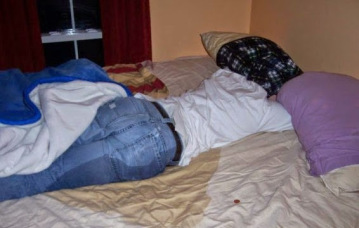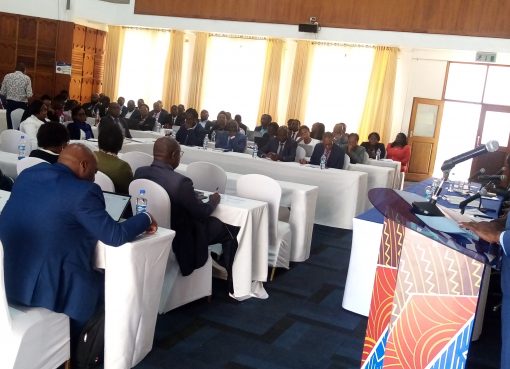Scores of people assume that bed-wetting is something that only happens to children and so when they come across an adult caught up in the same predicament, they hold mean assumptions about them.
Speaking to KNA at the Kiambu Level 5 hospital yesterday, Naomie Murithi a clinical officer explained that the condition can be traumatic and could easily cause unnecessary tension to the person who is affected and the immediate family members.
“Grown-ups feel embarrassed about seeking help for this condition thus resulting in the problem exacerbating to “Nocturnal Enuresis (medical name) could be due to psychological problems, medicines and health conditions such as hypertension and diabetes,” she said.
Murithi says that the most cases she has dealt with concerning Nocturnal Enuresis are those caused by the problem of the bladder whereby it cannot hold fluid for a long time. She said that normally when we want to go for a short call, muscles in our bladder squeeze and people undergoing the condition, their muscles squeeze too often or at the wrong times, hence causing leakage that is unwanted.
The medic further says that some drugs such as sleeping pills could easily irritate one’s bladder therefore causing them to bed-wet.
“Moreover, some of the people who struggle with bed-wetting in adulthood are those that suffer from psychological problems who, while growing up they had strict guardians who used to beat them up whenever they wet their bed,” said Murithi.
“”his triggers them to bed wet due to anxiety,” Murithi says. Among many reasons, she added that it could also be due to conditions affected by one’s body ability to store and hold urine. For instance, cancer, prostate cancer and diseases of the brain such as seizure disorder can cause it.
Murithi added that Nocturnal Enuresis can be treated and that grown-ups should not shy away from seeking help as that will only worsen the condition.
She advised that by starting to make a few changes to one’s daily and nightly routines the conditions can be controlled. “They should avoid taking caffeine and alcohol which stimulates the bladder and also take medicine which reduces the amount of urine the kidney makes,” Murithi advised.
She also said that one can undergo an operation called bladder augmentation which raises the amount of urine that the bladder can hold. She advised on sacral nerve stimulation which helps control an overactive bladder. “Usually in sacral nerve stimulation the doctor puts a small device into your body that sends signals to nerves in your lower back that help control the flow of urine,” she said.
It is however important to take some simple steps to manage the situation like putting a waterproof cover over your mattress or sheets to keep them dry, wearing absorbent underwear or pads to bed and use special skin cleansing cloths and lotions to prevent your skin from getting irritated in case one had such a condition.
“We should therefore have patience with people suffering from Nocturnal Enuresis as it is not their fault. Also to the affected people, they should approach their conditions in a positive way because it can lead them into getting depressed which is another additional challenge to address,” she added.
By Keit Wangari and Lydia Shiloya





